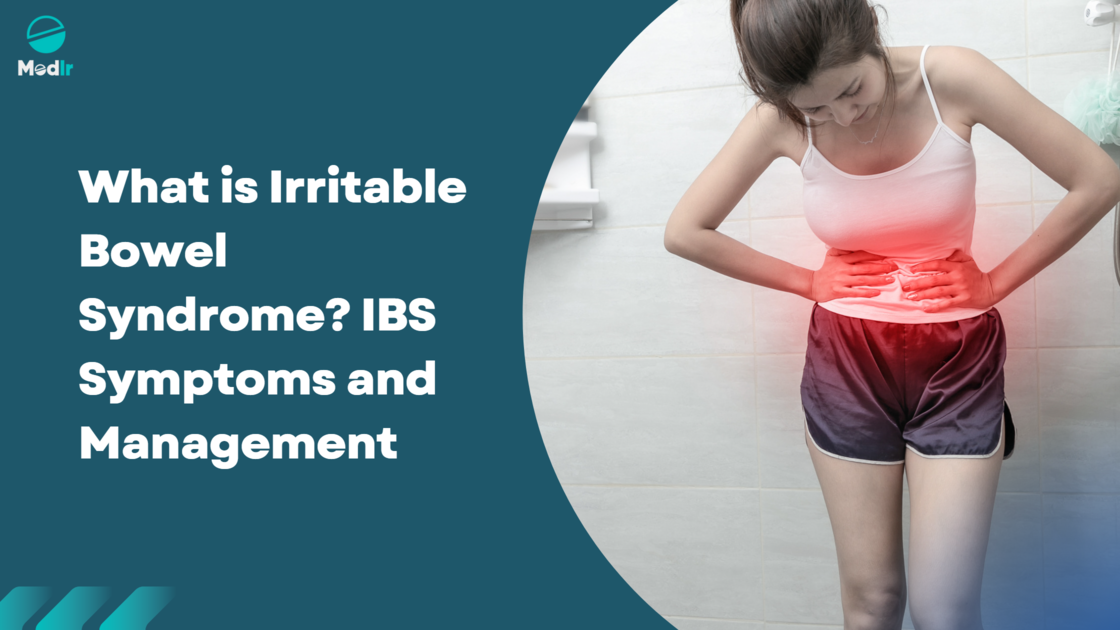What is Irritable Bowel Syndrome? IBS Symptoms and Management
Written by Shaveta Arora
Irritable Bowel Syndrome (IBS) is a chronic condition causing abdominal discomfort, bowel changes, and bloating. Customized treatment plans including dietary modifications, lifestyle changes, and medications can help manage symptoms effectively.

Several digestive symptoms that regularly interact makeup IBS. The severity and length of the symptoms varies from one person to another. Other names for IBS are Spastic Colitis, Irritable Colon, Mucous Colitis, and Irritable Colon. It has no connection to other bowel illnesses and is a different condition from Inflammatory Bowel Disease.
The doctors look for symptoms that happened at least three days per month over the previous three months in order to diagnose it. In some circumstances, IBS can harm the digestive system. Though, this is uncommon. As per a 2022 study, IBS doesn't raise your risk of Gastrointestinal Cancer. It might still have a significant impact on your life, though.

Irritable Bowel Syndrome Symptoms
IBS symptoms might vary, but one common thing is that they usually last for a long time. The most frequent ones are:
- Abdominal discomfort that is due to a bowel movement, such as cramps or bloating
- Alterations in the way your bowel movements looks
- The frequency of your bowel motions changes
- Feeling of incomplete ejection
- An increase in gas or mucus in the stool**
Irritable Bowel Syndrome Management
Although no single treatment is effective for everyone suffering from IBS but majority of the patients can find out a treatment that suits them. Your IBS treatment plan will be customised by your doctor to meet your needs. Dietary and lifestyle modifications are generally used as alternative treatments. A nutritionist can assist you in design a diet most suitable for you.
Many people feel their symptoms get better with these changes:
Diet Changes for Irritable Bowel Syndrome
- Eat more fruits, vegetables, grains, and nuts to increase the amount of fibre in your diet.
- Supplement your diet with fibre supplements like Metamucil® or Citrucel®.
- Eight glasses of water has to be consumed everyday.
- Avoid caffeine, which is found in sodas, teas, coffee, and chocolates.
- The prevalence of lactose intolerance is higher in IBS sufferers.
- Make sure to get calcium from a variety of foods, including salmon, spinach, broccoli, and supplements.
- Try the low-FODMAP diet, a dietary regimen that can help your symptoms go better.
Activity Changes for Irritable Bowel Syndrome
- Exercise regularly
- Don’t smoke
- Try relaxation techniques
- Eat more frequent, smaller meals
- Keep a food journal. It will help you identify the meals that cause IBS flare-ups. Red peppers, green onions, red wine, wheat, and cow's milk are typical triggers
Medical Changes for Irritable Bowel Syndrome
- Your doctor may prescribe antidepressant medication if you feel hopeless, anxious, or have significant stomach discomfort
- Medications are available for diarrhoea, constipation, or stomach pain also Your best option may be probiotics. These "good bacteria" can aid in symptom improvement
- You may need to undergo some more tests if your symptoms don't go away to determine if an underlying disease is your source of the symptoms
Read Also - Foods that boost immunity
Treatments for Irritable Bowel Syndrome
Sometimes, medical treatment for symptoms has little effect. You can be referred to a mental health specialist for alternative treatment strategies. Some sufferers receive relief when they follow:
- Cognitive Behavioural Therapy (CBT)
- Hypnotherapy
- Biofeedback
It could be frustrating to attempt and control IBS as trial and error is very common during treatment. However, the good news is almost everyone with IBS can finds out a treatment that works for them.
Symptoms get better over time with modifications to diet and activities. As you identify your triggers and take action to prevent them, you may need to be patient. On the other hand, once you follow the suitable treatment, you start to feel a lot better within a few weeks or months. A nutritionist can assist you in creating a diet that is both wholesome and satisfying for you.

FAQs
What is the main cause of irritable bowel syndrome?
After a severe case of diarrhea brought on by germs or a virus, IBS may appear. It is known as gastroenteritis. Bacterial overgrowth in the intestines is another factor that may contribute to IBS. stress in early childhood.
Can IBS be cured?
Although there is no cure, changing your food and lifestyle can assist with symptoms. If you have ongoing issues related to your stomach, speak with your doctor. You can come up with an IBS treatment plan that works for both of you.
Are bananas good for IBS?
Berries, citrus fruits, and bananas are examples of fruits lower in fructose that may be preferable for those with IBS.
What diet is good for IBS?
The basic idea of the low FODMAP diet is that some carbohydrates are poorly absorbed by the small intestine and that ingesting them exacerbates IBS symptoms. In order to treat irritable bowel syndrome symptoms, doctors frequently advise patients to follow a low FODMAP diet.
How long can IBS last?
The digestive system is impacted by the illness known as irritable bowel syndrome (IBS). Some of the symptoms it causes are diarrhea, bloating, stomach pains, and constipation. These frequently occur and disappear over time and can last for a few days, a few weeks, or even several months. Typically, it's a lifelong issue.
Can you fix IBS naturally?
Home treatment options for IBS include natural therapies like peppermint oil, dietary adjustments like increasing your consumption of soluble fibre, and behavioral modifications like stress reduction.